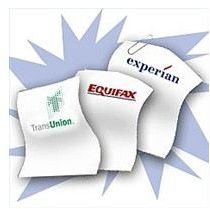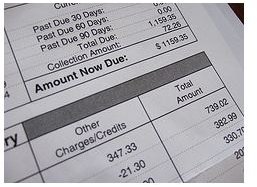Should You Use a Credit Reporting Service
What Are Credit Reporting Services?
If you have accounts receivable customers that you’ve attempted to collect debt from to no avail, a credit reporting service allows you to report the late debt to credit bureaus. Once reported, whether it’s a company or an individual, the bad or late debt will appear on their credit report.
The Pros of Reporting Bad Debts
There are a few pros to utilizing credit reporting services including:
- Possible Collection – If an individual or company that owes you money realized you have reported the uncollected debt, they may be eager to resolve the issue in order to remove the reported bad debt.
- Bad Debt Reporting – Customers who do not pay and have bad debts reported will often find it difficult to set up new charge accounts with other unsuspecting business owners. Most businesses will check a company or individual’s credit report prior to allowing a charge account. If you report an unresolved bad debt, it will make it difficult for the person or company to gain access to charge accounts at other businesses.
- Fees – Depending upon which credit reporting service you use, you can report a bad debt for under $25.
The Cons of Reporting Bad Debts
As a small business owner, if you choose to use credit reporting to aid you in collecting bad debts, there are some cons:
- Fees – While the fees for some reporting services are reasonable, their fees are based on the number of accounts you want to report. You may be able to report one bad debt for under $25, but adding multiple accounts will be higher based on the services you choose. It may be effective for you to utilize, but you must consider it a business expense.
- Full Debt Recovery – Some, but not all reporting services, take a cut of the debt you recover along with fees, meaning you’ll get less than what you are owed.
- Legal Issues – In order to avoid legal issues, when using a reporting service, you must ensure you keep good records and documentation, with the customer’s signature so you can prove the debt is really owed to you.
- Resolution Fees – If you are successful in reporting bad debt and are paid what is owed to you, keep in mind you are also responsible for reporting a settled debt. Some companies will charge for reporting a resolved debt.
Collect Bad Debts Without the Fees
Most small business owners aren’t aware they can attempt to collect a bad debt on their own through local civil courts. There are court-filing fees, but most civil courts offer fees in the $15 to $20 range. Once the person or company is served with the civil complaint, they will either pay you or must appear in court.
Often, the threat of a civil court proceeding will make the bad debtor pay in full or set up a repayment plan with you. If you resolve the debt, you can always notify the civil court at no charge that you wish to stop or end the civil case.
Call you local civil court and find out how to file a case and find out what fees and documents are required.
Where to Find Credit Reporting Companies

If you do an Internet search for credit reporting services or bad debt collections, you’ll find a range of services.
- Private Companies – There are private companies such as Old Debts, that can help you collect bad debts and report to credit bureaus. Most private companies offer debt modules such as sending out collection letters first at a lower fee and then reporting the unpaid debt to credit bureaus. Fees are based on services utilized.
- Credit Bureaus – All three credit bureaus, Experian, TransUnion and Equifax, will allow your business to become a member and report bad debts. Membership fees are higher and to report bad debts, you may have to buy their software that converts bad debt into a computer language the bureaus accept.
- Local Companies – If you live in a smaller city or town, you will find some credit reporting companies that are members of all three credit bureaus and will help you report bad debts at lower fees under their membership agreements.
Summing Up Credit Reporting Services
It may seem like a good idea to utilize reporting services, especially if you have large amounts of old or bad debts. Before you decide to use one, consider the fees and expenses versus attempting to collect the debt through the court system.
If you do allow customers to set up charge accounts, don’t just get their individual or company information and file it away. Check both vendor and bank references and run a credit report first to avoid bad debts before they start.
The Small Business Center offers advice on when to run a customer’s credit report and effective ways to manage your accounts receivable. Experian also offer an affordable way for small business owners to check another company’s credit report. This is a great tool to determine if you will allow a charge account to be opened.
Finally, if you do want to allow customers to set up charge accounts, make sure you utilize a credit account request form, a sample form can be found in our Media Gallery.
